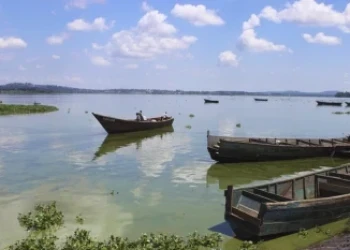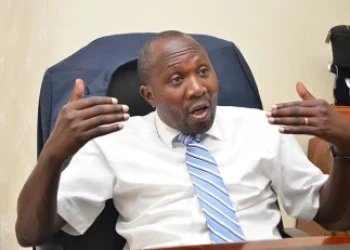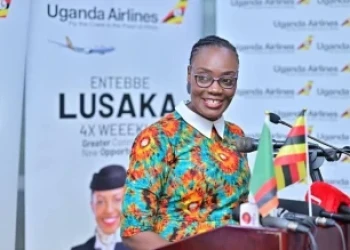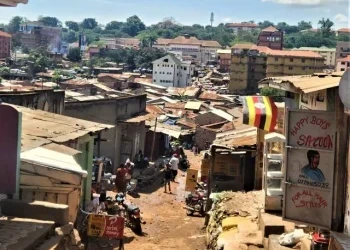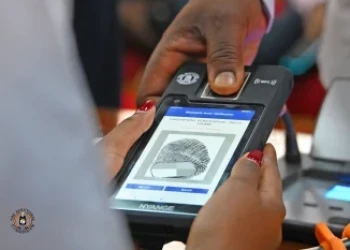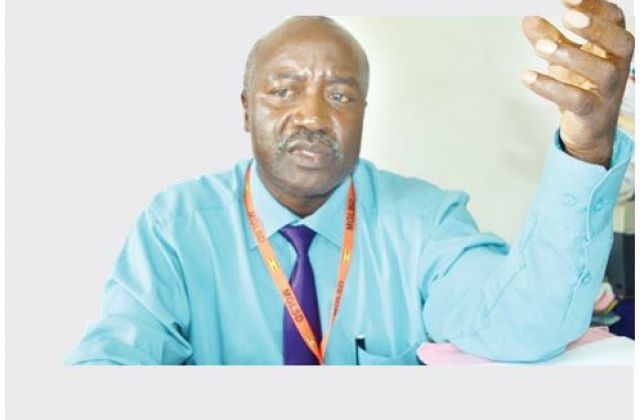
All persons intending to broad for employment have reason to smile. The ministry of Gender, Labour and social Development (MGLSD) has assured the public that whoever is intending to go for work overseas is free to do so since the government already licensed a number of companies to export employees. This was disclosed during an exclusive interview with Assistant Commissioner of Employment Services MGLSD, Milton Turyasiima started on a warning note that, “The general public must know that there are many unlicensed companies and individuals that are taking people abroad. Most importantly however, they should know that there are fully licensed companies doing the same.” He added: “If you are in doubt, the MGLSD is open for you to always come in and inquire. We also always work together with the voice of the coordinator for anti-human trafficking in fighting workers’ exploitation.”
Turyasiima told reporter that people have failed to understand that there are three channels through which people go outside. A person can go on his/her own because there is internet where they can get job connections and friends who can easily convince them to do so. Secondly, he added that there are some private individuals who look for the jobs and link Ugandans there. Then there are those jobs of the licensed companies. “We have had challenges with the first two channels. For the licensed companies, in case of any problem with their client, it all downs to that company.
The government will hold that company responsible unlike the other untraceable two channels. For the companies, if they said you are going to work as a driver, cleaner, sales person etc. it will strictly be so,” says Turyasiima. “What then should persons who want to go abroad for work do?” our reporter asked Turyasiima. “If a person wants to work, he or she must first of all approach a registered company. Secondly, even if it is registered, when you go there first ask all that you want to know before going any step further. For example, ask for their license and look at it. The third thing you must confirm is whether that company has the job,” Turyasiima stated. He noted that if a company secures any jobs abroad, it must submit the list of those jobs to the MGLSD and those jobs are approved, taking into considerations the terms and conditions of service. “If the terms are not descent then we do not approve that job order. So all the companies that are officially taking people abroad and are licensed submitted their job lists and they were approved.
Actually, MGLSD issues a job approval and it is this that people should also ask for,” Turyasiima advised. He further explained that, “The other thing is that before signing any contract, people must look at the job terms. Sign only if the terms are favorable to you. Do not be deceived that you will sign the contract when you reach abroad.” Turyasiima guided that the contract must clearly specify the working hours, how much you will be paid and how much you can be paid in case you work overtime to avoid exploitation. “There must be time for work and rest, expiry period, insurance terms, compensation in case of repatriation or death. In case of death, lying the body back should be the company’s cost and not the relatives as some companies used to do,” he noted
Of what negative effect human trafficking is to Uganda, Turyasiima noted that this is to both the individual and the country as a whole. “To the individual, the rights of that person are violated.
Secondly, his or her productivity is highly hampered especially that it is normally trafficking that person to go and work under forced labour. You do not expect that such a person will work at the same deficiency like one that has been forced,” said Turyasiima. And to the community, he said that trafficking a resourceful person deprives society of his/her services. “If it was a normal migration trend, the individual would benefit and then the community would also benefit from the remittances- which are not possible with trafficking because the end in it is exploitation,” Turyasiima noted.
According to reports, the network for human trafficking is very wide with networks up to deep to the ground. Fighting it therefore must call for decisive and comprehensive measures. In agreement with this approach, Turyasiima say that trafficking is not one person or one institution matter but for the whole nation. He said that what needs to be done is giving the general public information. Then the general public should act in that line of advice. He noted however that the big- gest challenge is utilization of the given information. “The information can be given but if people are in a tight corner, they will have that information but may ignore it. Be- cause of the bad situations, some may think that probably life may be better when they are trafficked than when they stay behind,” Turyasiima disclosed. He then appealed to the public that, “Everyone should be informed about the dangers and disadvantages of human trafficking. They should also know that there are proper channels through which people can go abroad for work.” Turyasiima emphasized that at the moment, the issue of being trafficked is a decision of an individual because the government has tried to avail the necessary information concerning working abroad. He decried the increasing disintegration of our family units as being that main accelerator of human trafficking because the exploiters can easily reach and convince people, especially the desperate ones.
On what the government can do or is doing to fight trafficking persons, Turyasiima said that this is being tackled in three ways; prevention, protection and prosecution plus pattern ship. “Under prevention, one, we have a legal framework to deal with human trafficking. We have the laws in place. Secondly, we are putting in a mechanism where people can go officially if they are seeking, especially, employment abroad. We have officially licensed companies which are allowed to recruit and deploy Ugandans,” he told our reporter. On prevention, he said that there are many organizations that were put in place and have been strengthened to counteract human trafficking, while those found guilty of human trafficking are taken to court straight away for prosecution. Government is also partnering with many organizations and countries abroad to ensure safety of workers and fight human trafficking.
(By John Nanyumba)
Comments (0)
📌 By commenting, you agree to follow these rules. Let’s keep HowweBiz a safe and vibrant place for music lovers!


